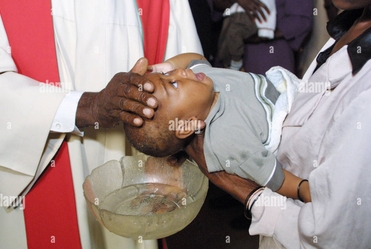
support@yorubalibrary.com
+2348073529208, 07038599574

Yoruba naming ceremonies, known as "Isomoloruko" are significant cultural events that celebrate the arrival of a new child. These ceremonies are deeply rooted in Yoruba traditions, reflecting the community's values, beliefs, and practices. This article explores the customs and significance of Yoruba naming ceremonies.
Importance of Naming Ceremonies in Yoruba Culture
In Yoruba culture, naming a child is more than just assigning an identity; it is a profound act that connects the child to their ancestry, spiritual world, and community. The name given to a child is believed to influence their destiny and character, making the naming ceremony a crucial event.
Timing and Preparation
Yoruba naming ceremonies typically occur on the eighth day after a child's birth. This period allows the family to prepare for the event and ensures the child has survived the critical first week of life. Preparations involve gathering family and friends, organizing a celebratory feast, and making necessary arrangements for the ceremony.
The Ceremony
Opening Prayers and Blessings
The ceremony begins with prayers and blessings from the elders and spiritual leaders. These prayers seek protection, prosperity, and a good future for the child. Elders play a pivotal role, as they are seen as the custodians of wisdom and tradition.
Naming the Child
The central part of the ceremony is the naming of the child. The father or a respected elder announces the chosen names. Yoruba names are often meaningful and reflect circumstances surrounding the child's birth, family history, or hopes for the child's future. A child may receive multiple names, each bestowed by different family members.
Symbolic Rituals
Several symbolic rituals accompany the naming process:
• Water: Water symbolizes purity and the essence of life. A drop is placed on the child's lips, signifying the wish for a clear and untainted path in life.
• Honey: Honey represents sweetness and happiness. Placing a drop on the child's tongue is a prayer for a joyful and pleasant life.
• Palm Oil: Palm oil stands for health and protection. It is often touched to the child's skin, invoking physical well-being.
• Salt: Salt symbolizes wisdom and preservation. A touch of salt is given to the child, hoping for a wise and enduring life.
• Kolanut: Kolanut in Yoruba language is called "Obi". It is a special fruits and used for a wide range of occasions and rituals. Obi is used as a prayer for guidance and protection for the new born baby
Feasting and Celebration
Following the rituals, the ceremony transitions into a lively celebration. Traditional music, dancing, and a feast featuring Yoruba delicacies mark the joyous occasion. The community's participation emphasizes collective support and unity.
Names and Their Meanings
Yoruba names are rich in meaning and often reflect the circumstances of a child's birth or the family's aspirations. Some common types of names include:
• Oruko Amutorunwa (Destiny Names): Names that are believed to be given by the spiritual world, such as Taiwo (first-born twin) and Kehinde (second-born twin).
• Oruko Abiso (Acquired Names): Names given by family members, often reflecting aspirations or significant events, like Ayodele (joy has come home) or Yetunde (mother has returned).
• Oruko Idile: These are lineage names given to the child. It may include Oyedeji, Fashola, Egunjobi Etc.
Conclusion
Yoruba naming ceremonies are deeply significant events that go beyond the mere act of naming a child. They are rich with tradition, symbolizing the hopes, values, and communal bonds of the Yoruba people. By understanding these practices, we gain insight into the cultural heritage and enduring customs that shape Yoruba society.

Learn about the Yoruba concept of Ìwà Pẹ̀lẹ́ (good…

Learn special praises for Divine Being and Creator…